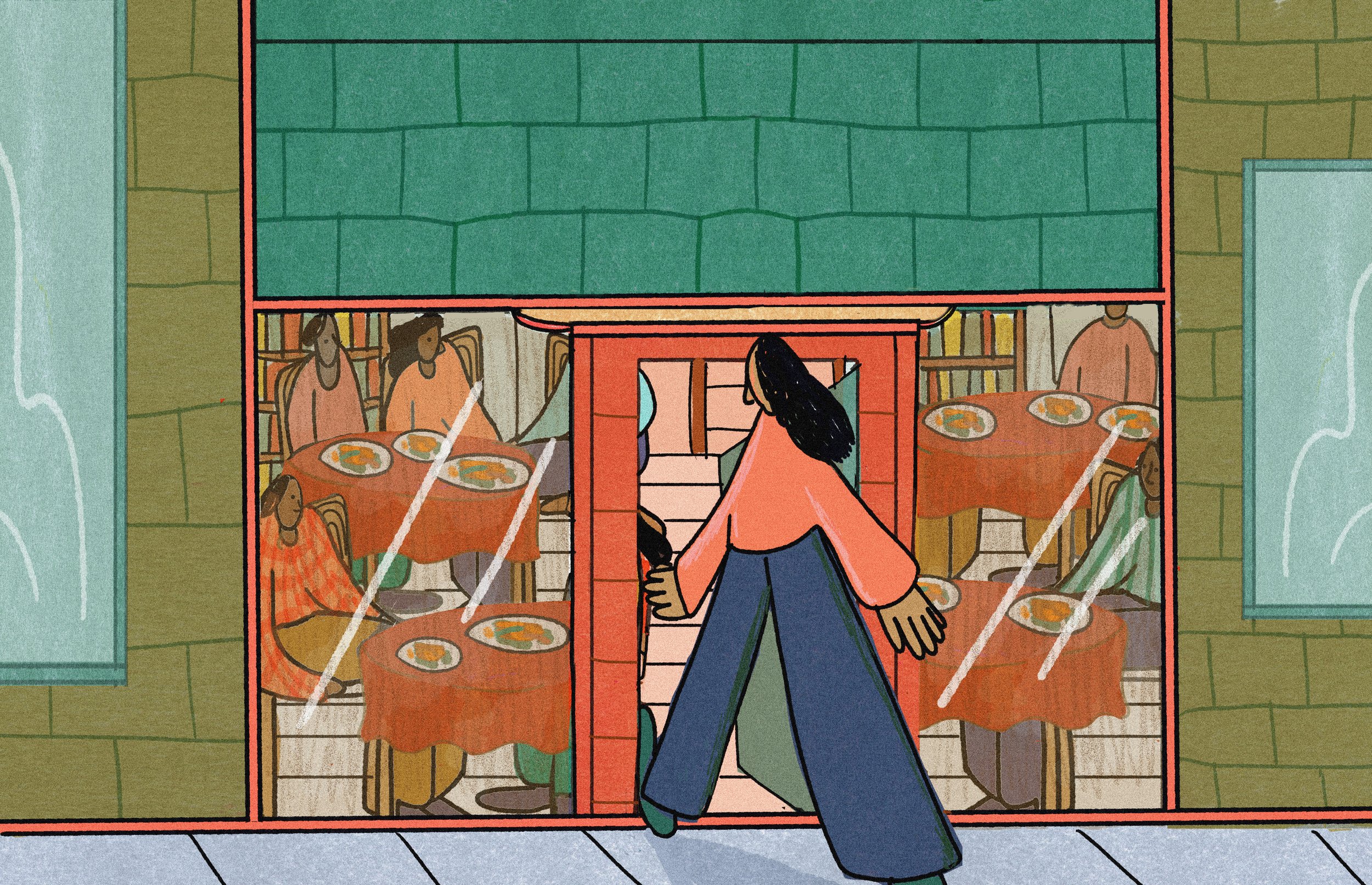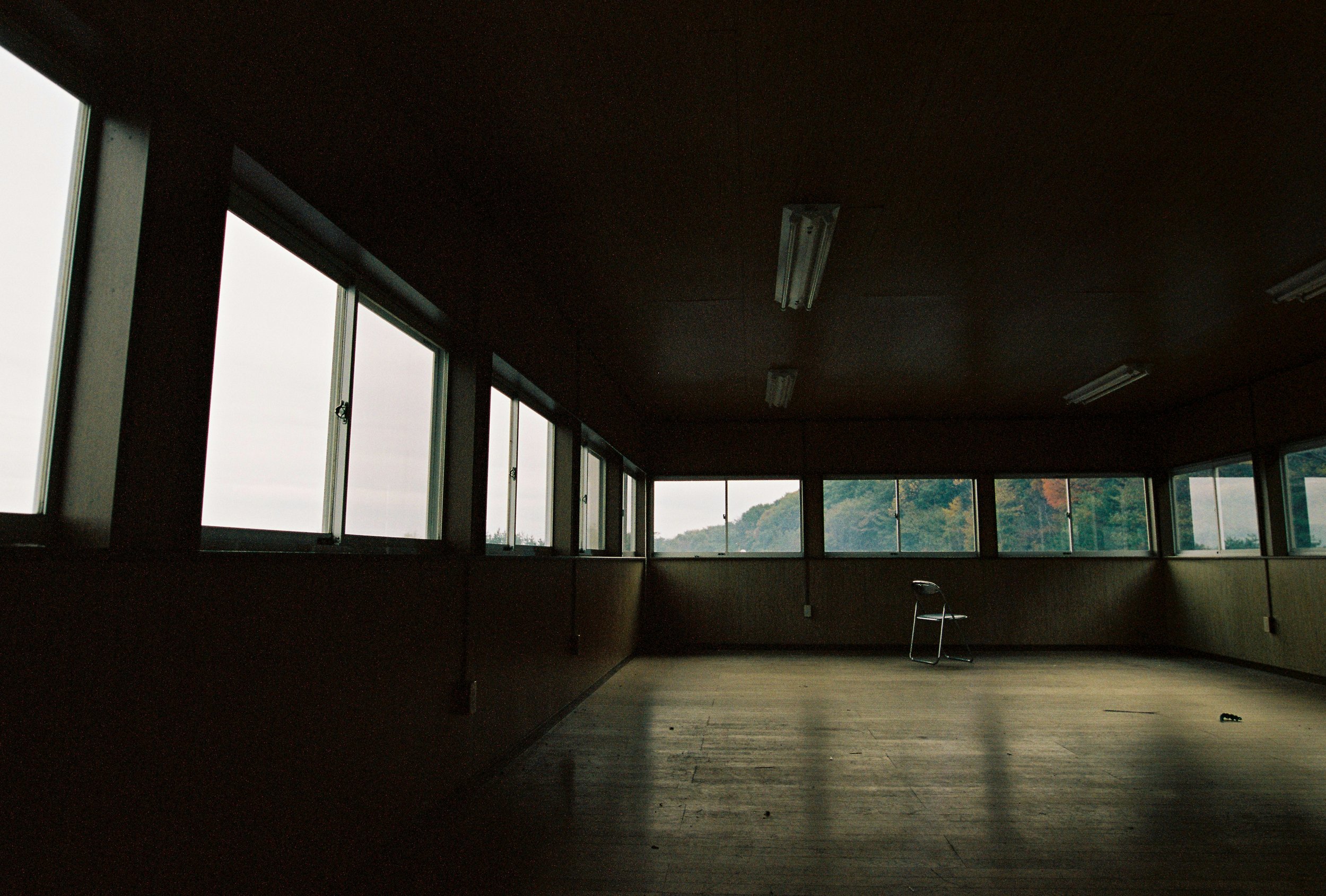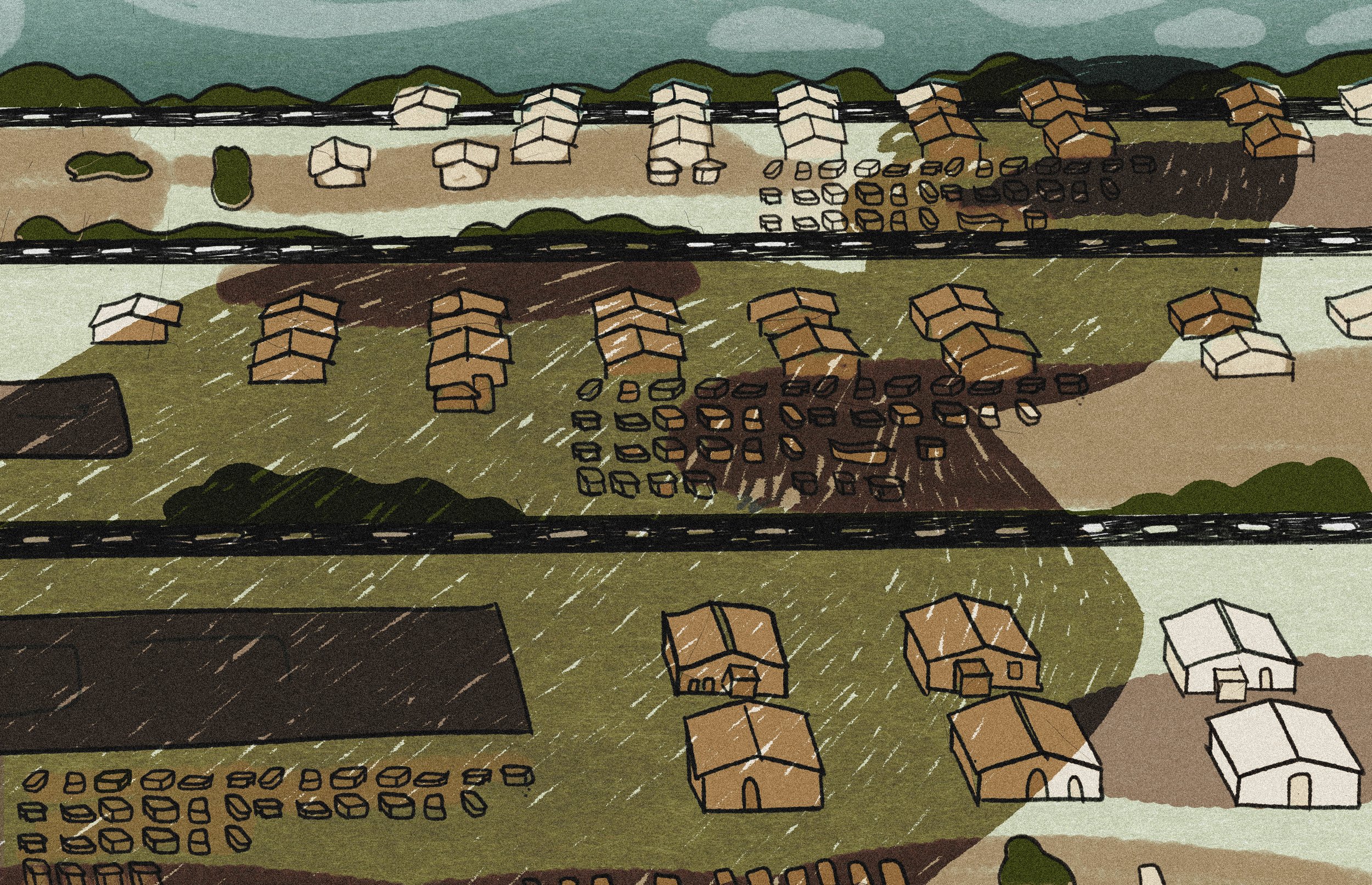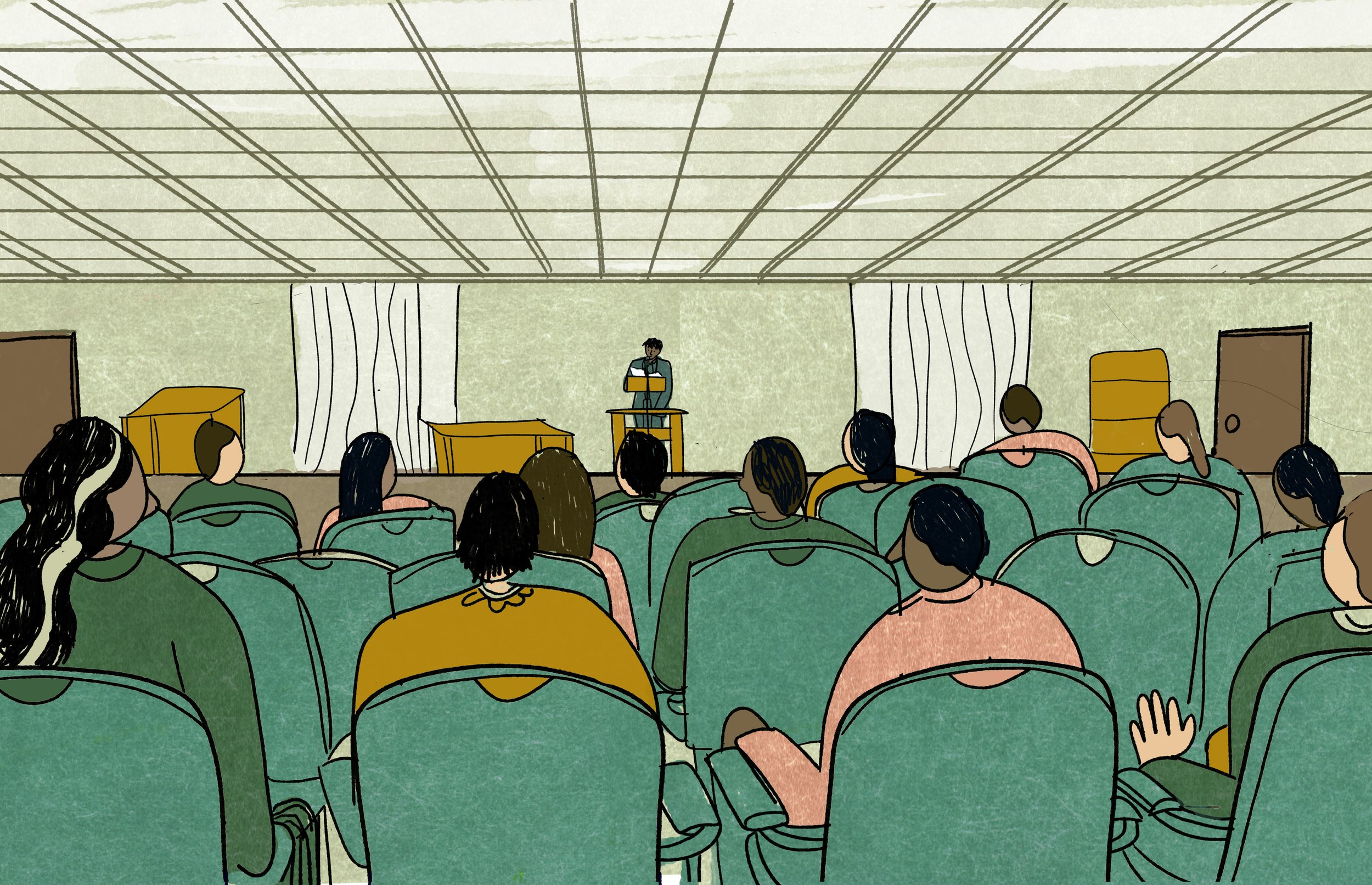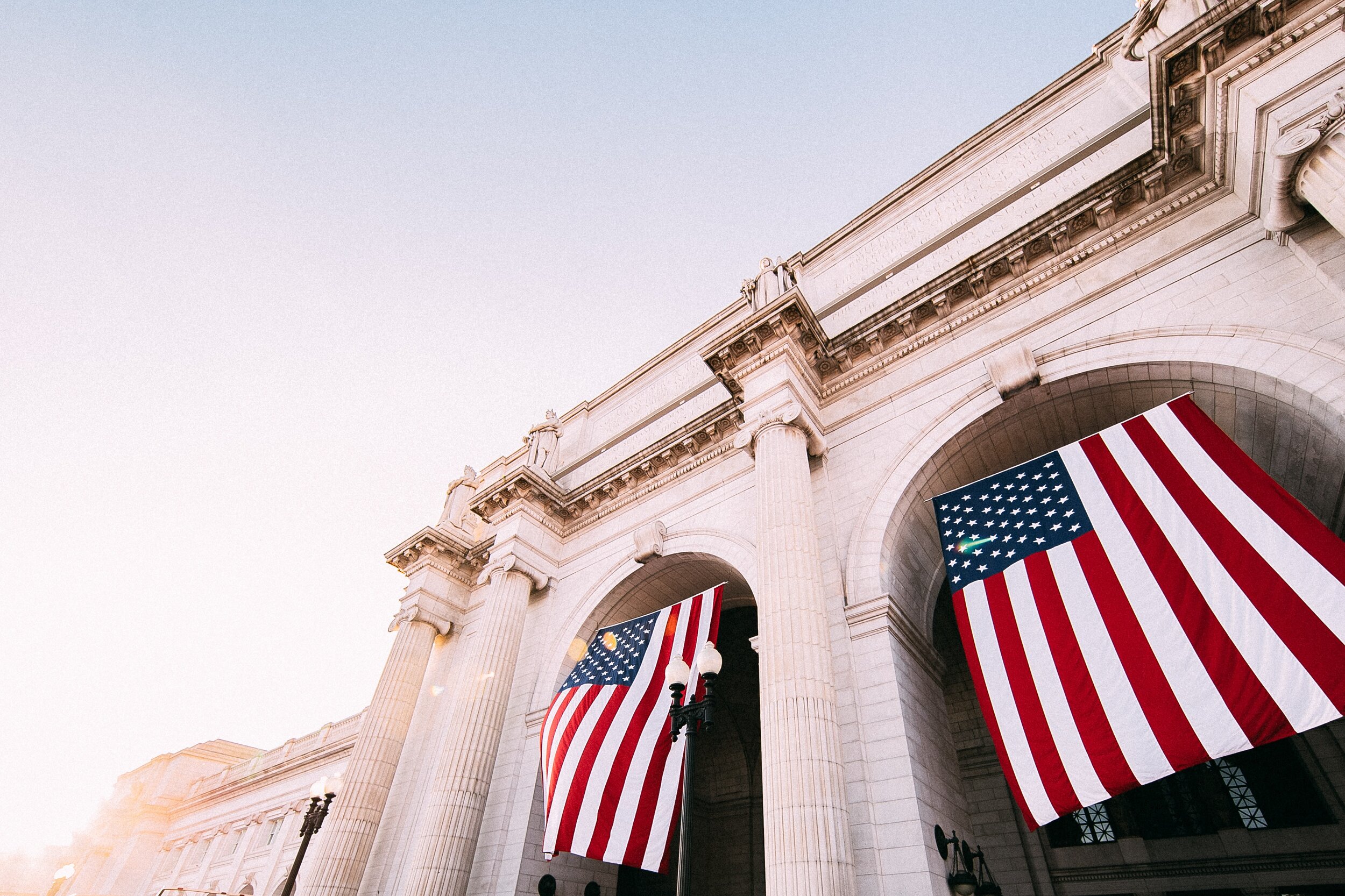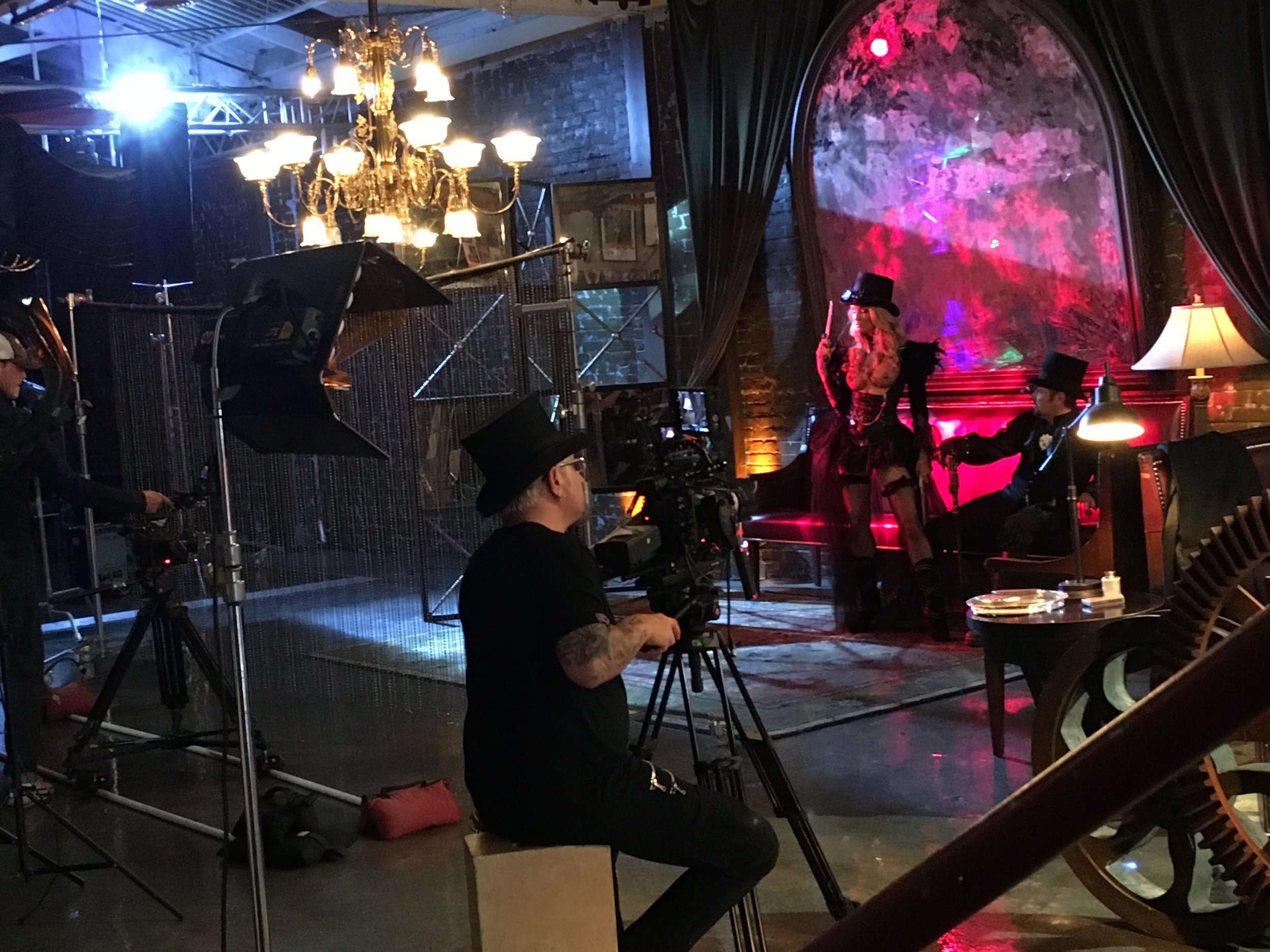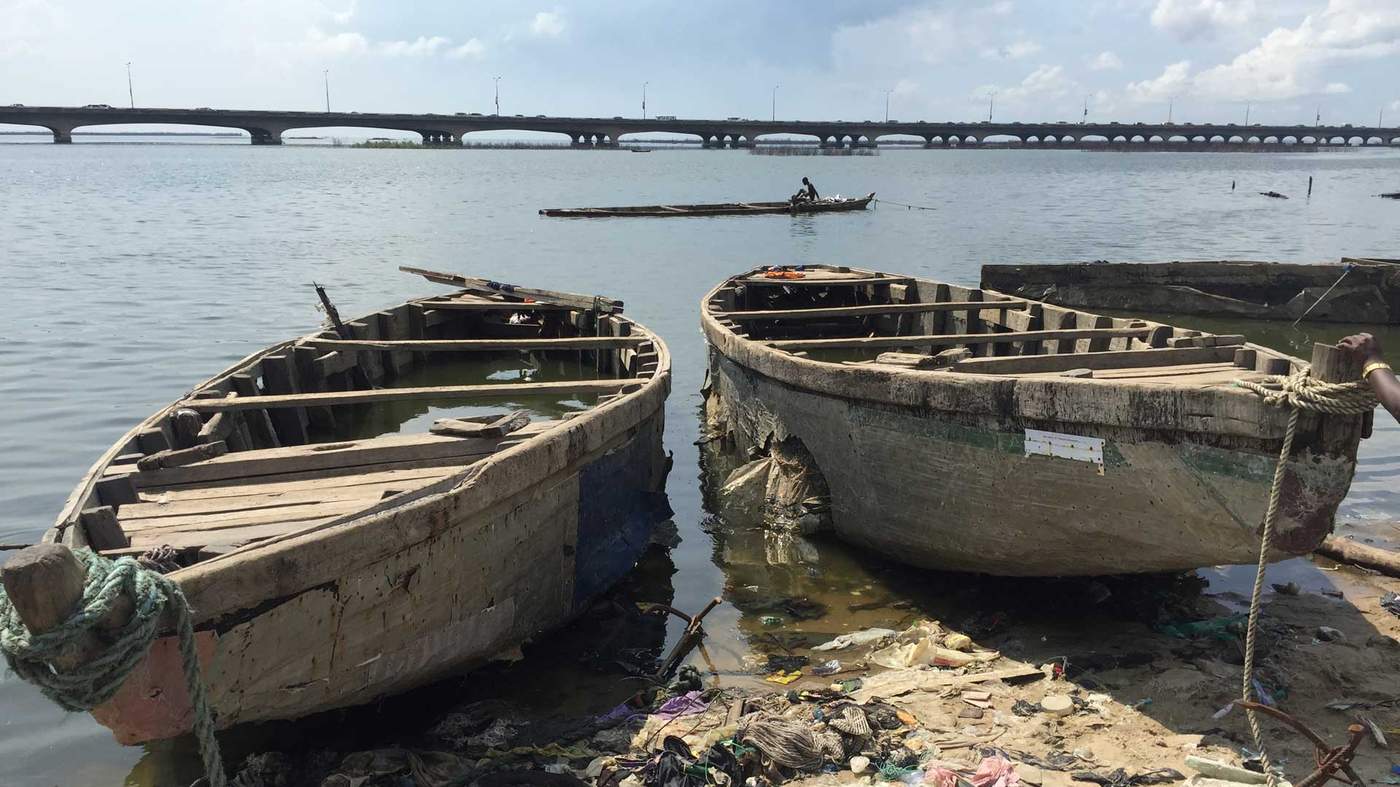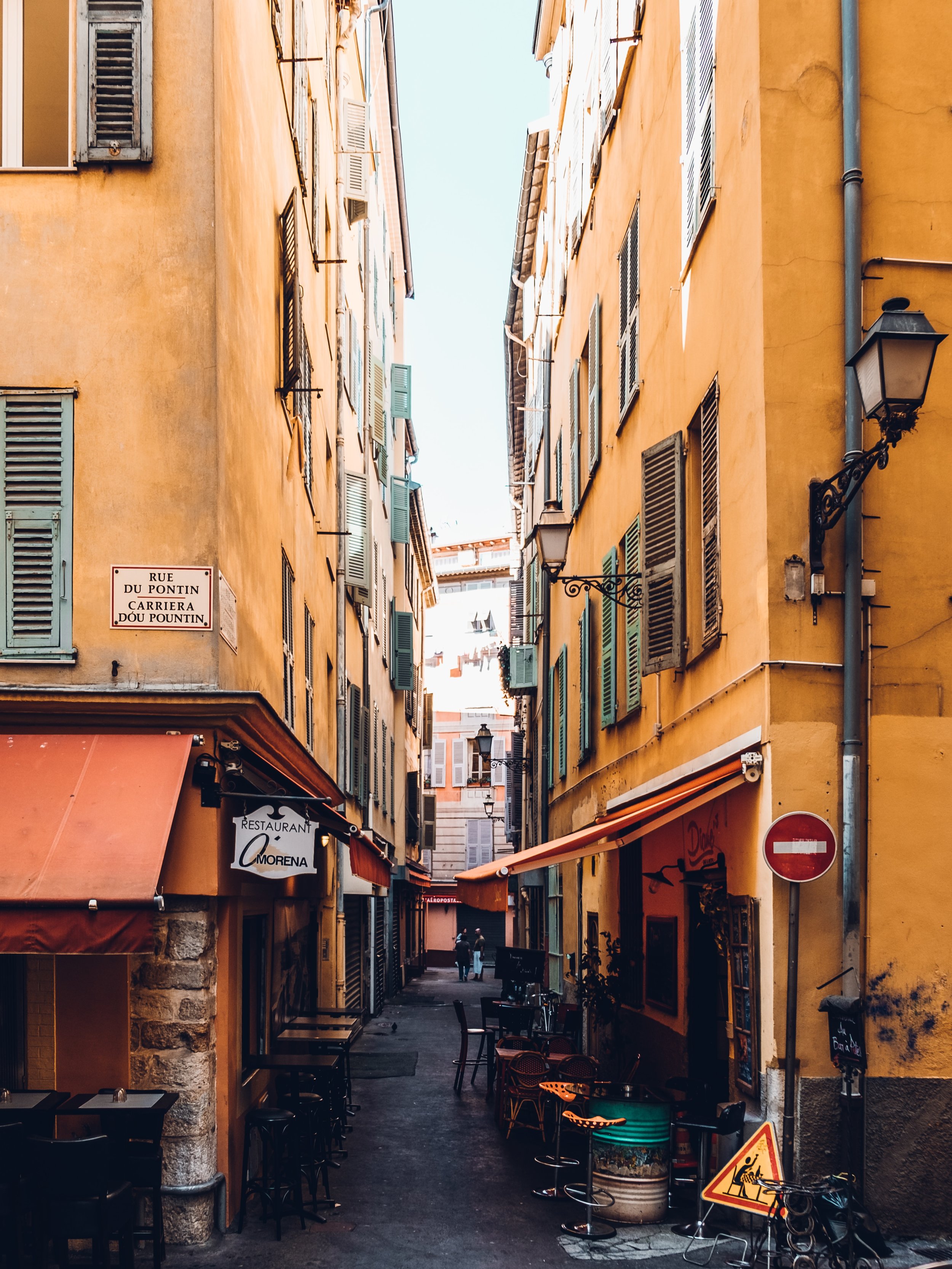Behind the Briefings: Janet Rodriguez

Years before images of migrant children detained in enormous tent camps filled American television screens, Maricopa County Sheriff Joe Arpaio was rounding up undocumented immigrants, housing them in an outdoor prison known as Tent City, and outfitting them in black and white uniforms with pink boxers—clothes he calculated would be maximally humiliating. Univision White House Correspondent Janet Rodriguez was there, covering Arpaio, and a wave of harsh state immigration laws in Arizona, for Telemundo from 2008 to 2013.
Now, she sees Trump borrowing Arpaio’s playbook, turning the issue of immigration into theater—and using his position to pardon Arpaio, an early supporter who was convicted of contempt of court in 2016 for defying orders to stop arresting people solely on suspicion of their immigration status.
OA’s Isabelle Taft spoke with Rodriguez about covering the Trump administration for the country’s largest Spanish-language network, how her work in Phoenix informs her reporting on the White House, and why she hangs a pair of Joe Arpaio’s infamous pink boxers—autographed by the sheriff himself—in her office.
OA: Can you explain what your crazy day yesterday was like?
JR: So yesterday, we woke up with the news of Julian Assange being arrested. We were able to have somebody in London for the newscast, but there was a lot of interest here in Washington, of course, as to why the US was trying to get him extradited and what the charges were. And then Mr. Trump spoke, and he said he didn't know anything about WikiLeaks, he didn't know anything about Assange, he was leaving everything to the Justice Department.
Obviously, that was all very puzzling to us and that became the story more than the legal ramifications of Julian Assange coming to the US. It flipped everything around when he said that, given the background of him praising WikiLeaks over and over again during the campaign. And, obviously, that’s very easy to prove––tons of clips of him saying I love WikiLeaks, I love reading WikiLeaks, and so on and so forth.
And having to put things together––running to the White House, getting reactions from the White House themselves, [asking] why the president is saying that he's forgetting about Wikileaks, and also putting that along with the DOJ trying to figure out if they were going to file any more charges against Assange. We were working kind of two articles that had to be combined into one story, so yeah, it was a busy day. Because the president once again made news where there wasn't news necessarily with his comments, which tends to throw our day for a loop on a regular basis.
OA: How does it feel when you're doing this fact-checking and constantly proving to the world that the President has said something demonstrably false, and it just keeps happening over and over?
JR: It almost seems pointless, but that's our responsibility, whether people believe it or not, or trust that we are doing the right thing by fact-checking everything he says. It doesn't really matter what people think. It's our responsibility to do it. The best fact-checking is to show him in his actual words. We don't even have to state anything, we can just show two clips and let them see for themselves.
OA: During Trump’s campaign, he had an especially tense relationship with Univision. You came on board in April 2016, which was after the candidate had kicked Jorge Ramos out of a press conference and told him “Go back to Univision,” and after he had filed a $500 million lawsuit against the network for dropping the Miss Universe pageant. As you were watching all of that happen, what were you thinking about how you were going to do your job if Trump got elected?
JR: Well at the time we had no idea what to expect. He was just a candidate, and there were so many others. We were treading very carefully as to how we were going to handle the administration if he got elected. We were scared, I'm not going to lie, because under the Obama administration we did have a lot of access and they were friendlier to us. Although I must say like any administration, you get their talking points. And the Obamas wanted to get a message across as well.
When [Trump] actually won, we were scratching our heads, I think like many media organizations. But we also had the fear that they would discriminate more against Univision because of our Hispanic nature, because of our audience, because we're a minority, because of rhetoric that he had had during the campaign. And we also had the responsibility to press on him about all the things he had been saying about our community and not just let him get away with it.
But we have found in the past two year the administration has not been any less “open” to Univision than it is to all the other media. We're all playing in the same category of fake news. They don't discriminate against Univision in a way that has kept us from doing our job. We have access to the White House, to personnel within the White House in Spanish. All throughout these two years they have had a Spanish-speaking spokesperson that we can talk to on a daily basis on camera, somebody that we can request just like you would Sarah Sanders or anybody else. They have given us access to off the record meetings with the president, the vice president. We haven't been given the treatment of, “You're Univision, you're going to treat us badly on immigration, therefore we're never going to talk to you because your reporting will always be biased.”
OA: Univision’s chief content officer Isaac Lee was on a panel last year with other network executives on television journalism in the Trump era. He pushed back against some of the language being used and said, “I don't find it exciting, I find it very depressing.” As you do your job every day, does that ring true for you?
“Because the president once again made news where there wasn’t news necessarily with his comments, which tends to throw our day for a loop on a regular basis.”
JR: I find it challenging. I wouldn't say “exciting” is necessarily the right word. I wouldn't say it's exciting to cover a president that tries to separate families. It's definitely not exciting to cover kids dying while detained. There’s nothing exciting about the content that we're covering. I think it's new territory. As a journalist, it presses you to work harder to find ways of reporting that you haven't had to do before. But I wouldn't say it's depressing either. The circumstances that we're in are very unique, are very interesting, are uncharted territory. I would say it's challenging more than anything. I would label it as that, because of everything that's going on, and how we're having to report and fight back at the same time with the administration fighting us on all fronts. It doesn't matter whether we have it right or wrong.
OA: Do you feel like Univision does more of the fighting back than other networks because of the community you're working for?
JR: We're all being blamed the same, so I think we're all fighting back for our own purposes, in the same way and with the same energy. Media is media and at the end we're all being attacked under one umbrella.
And we have to give credit where credit is due. When the administration does something worthwhile, Venezuela for example, we report what the administration is doing on Venezuela without a bias. We don't have a bias on anything that they're doing.
And the administration knows where they have an ally. Now, with Venezuela, they have reached out to us quite a bit. They have offered us interviews with John Bolton for example. Two Fridays ago, I was down in Mar-A-Lago for a pool duty day where Venezuela was going to be a subject of the day and they knew that in advance, so they invited me to come down to Mar-A-Lago to spend the day in the extended pool, which is something we don't normally have access to, and on top of that do an interview with Bolton. They know where we're useful and they want to take advantage of that. We have a lot of Hispanic Venezuelans and Cubans and others would, could possibly vote for Mr. Trump given the hard line that he's taking against Maduro and the Cuban regime as well.
OA: As you're covering immigration in this White House, how do your experiences covering the issue in Phoenix earlier in your career inform your work?
JR: I see déja vu day in and day out. We don’t talk about it much; a lot of what’s happening nationwide today was happening back in Arizona 10 years ago, back in 2008. At that time Joe Arpaio was on a roll with the tent cities, daily raids, picking up people and sending them to ICE for no real good reason. A number of things were happening in the community that I don't think at the time, unless it was in Hispanic media, were getting the national attention it deserved.
So, when I see the president trying to push for policies that are not legally sound, I'm not surprised. There's a school of thought that you could get away with things, that has roots in Arizona. For many years, Arpaio was able to get away with many things that meant many families were separated, which meant the suffering of many in the community. And he kept getting reelected. That fear-mongering messaging, showing his agents on TV, the sheriff’s agents going out and picking up—we called them the paleta men, selling ice cream pops down the street, or the corn man. In Phoenix it's very common for immigrants, usually older immigrant males for the most part, to go around with little carts selling ice cream and selling corn. And he would round them up for no real reason. These were for the most part undocumented people. He would call us up, we're having a raid at whatever intersection, come see it. It would become a media circus. But that media circus made him look good on TV, the hero of the community.
I come with a background where I'm not a shocked or as naive about why the president is doing any of this and the impact that it has and how it resonates with his base, and why he presses on the caravan issue for example. It just doesn't surprise me that he's using what's happening at the border for his own political advantage. It works because we've seen it work time and time again in Arizona.
OA: And now that you have covered immigration in the US as it plays out on the state level and at the border, and you've also covered the issue as it gets debated here in Washington, do you have a preference between those two types of coverage?
JR: Very different coverage. In Arizona, while there was some political coverage in the way we did the news, and what was going on, a lot of the coverage was human interest stories. We covered a lot of the suffering, we covered a lot of the family separations because people were detained and left families behind, the deportations, tons of deportation stories and how hat affected both people that had to leave and the people that had to stay. Here in Washington it's all about politics. What is the president saying? How is that going to affect the policy that he sends to Congress? What is Congress saying? How is the leadership pushing back? Tons of fact-checking, tons of legal issues––can you really do this? Let me correct you, Mr. President, that's not lawful, and this is why. It’s just a different ballgame. We don't get to the community as much as I would like. Luckily we have a team of excellent reporters across the US especially in TX, CA, AZ that can; I do the political side and they can translate those stories into how this is affecting the people on the ground.
And having experienced one, I think has helped my reporting in the other. Because I know how real the effects of these policies are on the ground. Having known the impact that it has on the ground drives the way I tell the political story every day.
OA: Those shorts up there, can you tell me about those?
JR: Those are Arpaio's. Again, the same as with Trump: while as much as we criticize [Arpaio]––I mean God knows we were not easy on him––he would welcome us into his office, open doors, no problem. Univision was not the enemy, or Telemundo. I worked for Telemundo at the time. We were not his enemy. The more he could get his message out the better, the more we interviewed him the better, the more we put him on TV saying I'm getting the criminals out—the same messaging as Donald Trump—the better. We built a relationship with this man and before I left, he knew I was leaving and he signed the boxers and he sent me home with them. And I keep them because he is a figure that marked my career in many, many ways for five years. I covered this man day in and day out. And I did not agree with a single policy of his but it made me a very good reporter just because I had to really deal with the toughest stories that he put my way, both in a humanitarian aspect and a political aspect.
“A number of things were happening in the community that I don’t think at the time, unless it was in Hispanic media, were getting the national attention it deserved.”
OA: Did you know early on in your career that you wanted to come back to Washington at some point?
JR: Absolutely, and I didn't' know where my career was going to take me. I didn't know that immigration would become such a pillar in my reporting. I started my career in DC. I went to American University and became a reporter for my local Telemundo station. At the time, I would go to wherever it was that I could grow my career and that just ended up being Phoenix. I landed there at the right time, the right place, for not the right stories, but at a time when reporting on immigration was very important.
It was a big growing and learning experience for me. I'm an immigrant myself, but I have a much, much different immigration experience than the people I have covered. I came to this country legally and haven't had the hardships of many of these immigrants. It was eye-opening. It almost was like I was this white girl, only that I spoke Spanish and was placed in this community that I knew nothing about.
It just was such a growing experience and to be able to be part of this community, and for the community to understand me as well. That was a big challenge for me in Phoenix because I'm not Mexican, I don't necessarily look the part. I'm a little more white-looking than your regular Hispanic. And they wouldn't trust me. They would be like are you with him [points at Arpaio shorts] or are you with us? I had to prove myself through my reporting that it wasn't either “I'm with you or I'm with him,” it's “I'm reporting the story and telling the facts,” and “I'm not taking sides but I see where unfair is,” and “I see what the struggle of your community is and I see how he is trying to enforce the laws illegally and I can put that together in the story and present you the facts”. It gave me a different perspective, in many ways, as to how immigrants can come in all shapes, sizes, colors, and experiences.
OA: When your son is old enough to know that you're going to work but can't follow your broadcasts or read the news, how are you going to explain what your job is?
JR: I hadn't thought about that. I hope I can tell him that I'm a truth-teller in a way, in very simple words. Mommy tells people the truth and she corrects people when they're wrong. That's it.
Follow Janet Rodriguez on Twitter.
ABOUT THE INTERVIEWER
Isabelle Taft is a journalist and a former Princeton-in-Asia Fellow in Hanoi, Vietnam. She served as an intern at The Sacramento Bee and POLITICO Magazine. This is her first "Behind the Briefings" interview of this series.
Header photo by Joshua Hanson

